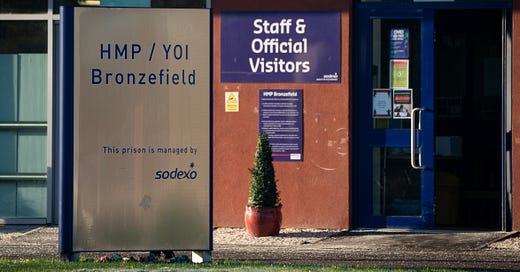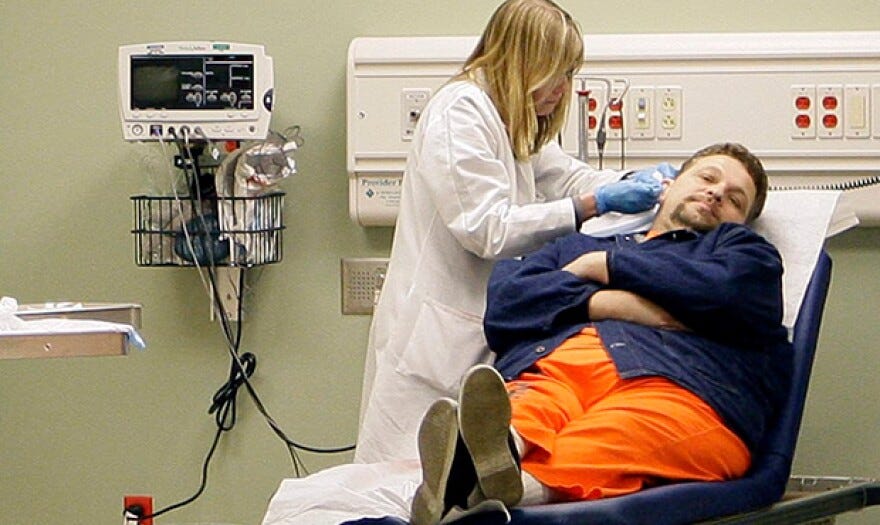"A significant portion of the medical problems I treated were brought on by stress and financial pressures. I learned early on in my career that money very often doesn't buy happiness."
After making the difficult decision to leave her village surgery after decades of service as a GP, Amanda Brown was startled to receive an offer to work as a doctor in an institution in the South East of England. In this illuminating memoir, Brown recounts the three prisons she worked at from the time she left the GP practice to the present day. The first was HMP Huntercombe, a youth detention centre for 15-18 year olds, the second was HMP Wormwood Scrubs, a men's prison, and lastly HMP Bronzefield, a women's prison, where Brown still works.
I've been on a bit of a medical literature spree lately and I was pleased to find this book available on Libby. The Prison Doctor is a relatively short read, similar in length and content to This is Going to Hurt by Adam Kay, who recounts his experiences as a Junior Doctor in the NHS. I've never really thought about the medical treatment side of prison life so I found The Prison Doctor to be quite an interesting read, particularly as the author worked extensively in both men's and women's prisons and shares her perspectives on how her experiences differed.
Though dealing with hardened criminals, Brown maintains a compassionate and empathetic disposition, one that evidences her skill and experience as a seasoned GP. What contributed towards her ability to remain impartial when treating troubled inmates is the fact that she was not privy to the crimes her patients had committed. This worked in her favour as she was able to detach any personal feelings she may have towards the prisoners and their crimes and was therefore able to treat them based on their symptoms alone.
Used to an affluent and comfortable lifestyle, Brown was promptly exposed to the harsh and gritty reality of prison life. Many of the prisoners had been homeless prior to detainment and some even after being released. Hearing and witnessing the prisoners' struggles allowed Brown to reflect on her privileges and opened her eyes to the lives of those without a support system. Working in prisons definitely shifted the author's perspective on life.
"Having family was usually one of the most important things for the prisoners. Someone to care about them, visit them, wait for them, help them get back on their feet when they were released. It was often the driving force that helped them cope with being banged up."
I do wish the book was longer and that the author delved a bit deeper into some of the issues she and the prisoner's faced, however I am aware that she does have other books, so I’ll give those a read.





